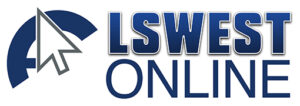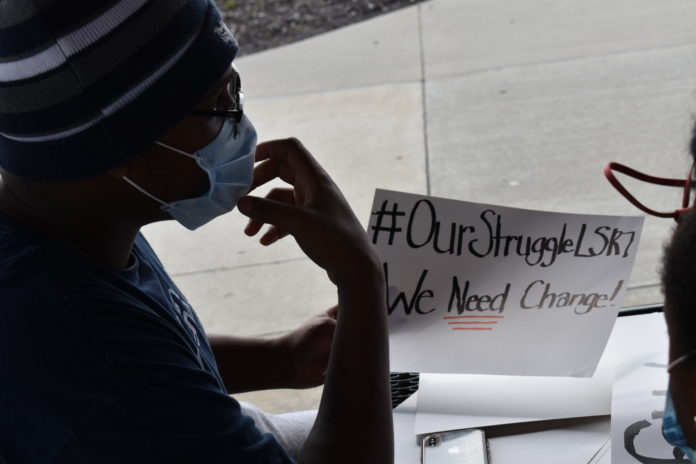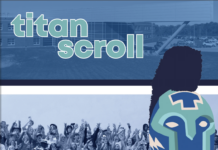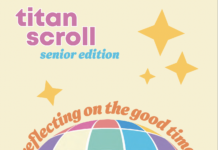Anna Eulinger and Lily Salmond
As the Black Lives Matter movement raced across the nation, a Twitter hashtag initiated by West alumna Maryam Khalil sparked a movement within the LSR-7 School District.
The hashtag, #OurStruggleLSR7, asked students to openly share their experiences within the school district in which they feel they were discriminated against based on race, gender, and sexuality. Students and alumni responded to the hashtag sharing their stories of discrimination.
Junior Kyra Meritt tweeted with a list of multiple encounters. She said in her freshman year on her way back from a debate tournament she “overheard people using the n-word in the back of the bus.” Her first encounter started back in elementary school where she said she was cast as the, “‘Kwanza girl’ in the grade school musical,” because she was Black.
Alumna Maddy Ferguson tweeted saying, “I quit the cheer team after multiple girls told me ‘they don’t want me looking up their skirts.’” After cutting her hair short, she also said she had fellow students call her homophobic slurs almost daily.
Principal Chad Hertzog said he heard about the hashtag on the Friday that it began. He said that he was aware of some of the situations referenced in the posts and that they were taken care of at that time, while other posts were new information.
“The range [of stories] would be the ones that we already knew about and had already handled. You know, we felt like those we worked through … there were a couple actually that were newer things that we had not known that we actually did reach out to those people and asked for more information so we could look into it,” Hertzog said.
When school starts back up in late August, Hertzog said students and staff can expect to see some changes at West. Even then, he said some of those changes may start taking place as early as July.
“I’ve already met with our student senate leadership because they reached out and wanted to talk about things we can do and how we can partner together. We have a good plan about some things we could even start in July with students and staff,” Hertzog said.
“In terms of change you can see and feel,” Hertzog said, “I hope there’s some of that in the fall when we come back, but I also know this is going to be an ongoing piece. It’s not about making change and then feeling like, ‘okay, everything’s good’. It’s about making change, committing to it, and working together for both the short term and the long term.”
Before knowing what impact the hashtag would cause, Khalil said she decided to start it when she noticed more people mobilizing other movements through social media. “By starting a hashtag where a lot of people could use their voices and employ a medium that they use often … I thought that it would be something that people would be happy to do in a good medium to use,” Khalil said.
After seeing the responses to the hashtag, Khalil said she was expecting some of what she saw, but was shocked at some of the other stories students decided to share.
“I wasn’t expecting some people to be so open about a lot of things that were very sensitive and I really applaud the bravery and strength of the people who used the hashtag,” Khalil said. The initial idea to start the hashtag, Khalil said, came from her own frustrations within the school district.
“I was just kind of fed up … I had experienced a lot of things that I wanted people to be aware of because just because I’m successful now, doesn’t mean I didn’t face discrimination,” Khalil said.
Senior Arie Rollins said she has experienced her share of discrimination, mostly from other students, in the LSR-7 school district.
“I’ve had comments made that weren’t the nicest towards me, dirty looks … just not the nicest things,” Rollins said. Going into high school, Rollins said she especially noticed more racial discrimination.
“I definitely became more aware of it when I got into high school. One thing that I really noticed over my whole schooling career is the lack of teachers of color that I’ve had over my whole career in school. I’m about to be a senior and I’ve only had two teachers of color. Representation is just so important. To see someone that looks like you in the school district is so important,” Rollins said.
Math teacher Vetta Manning is one of 12 Black staff members at West and said because of that, she feels she carries a responsibility.
“For some of my kids I am their first Black teacher they ever had … I’m the only person that they can see that’s Black, that’s capable, that is caring, that can love, that’s a Christian, and doesn’t hate and spew … and that doesn’t try to tear kids down. I don’t want kids to have that [bad] example of what a Black woman is,” Manning said.
While Manning teaches math, she said she also feels it’s part of her job as a teacher to educate students about more prevalent real-world issues.
“It’s just not my job to teach math, you can’t keep telling me that. You can’t keep telling me that when I have microcosms of world events happening within 47 minutes every single day. That deals with race, religion … I mean and I have to educate … it’s my job,” Manning said.
When she first was informed of the hashtag and took a look at it, Manning said she was heartbroken. A lot of the posts on the hashtag Manning had not been informed of and said she was embarrassed by it and felt bad for the students. She said she experienced very similar situations growing up.
“Growing up I pretty much lived the Lee’s Summit West minority story, that was my story. So, I can definitely identify with most of the stories from a student’s perspective — from a minority student’s perspective,” Manning said.
In order for problems to start getting worked out and changes to start taking place within the halls of West and across the LSR-7 school district, Hertzog said people will start having to leave their comfort zones.
“You don’t have meaningful change until people become uncomfortable, and that ‘OurStruggle’ hashtag made people uncomfortable — it did. It made people uncomfortable because it brought their stories out,” Hertzog said. “I want positive, good action to happen and I think it can, and it’s going to happen by all of us working together … That’s how we get better, and that’s what the hashtag is all about. It’s about a struggle and hopefully, the outcome of a struggle is that we get better.”














